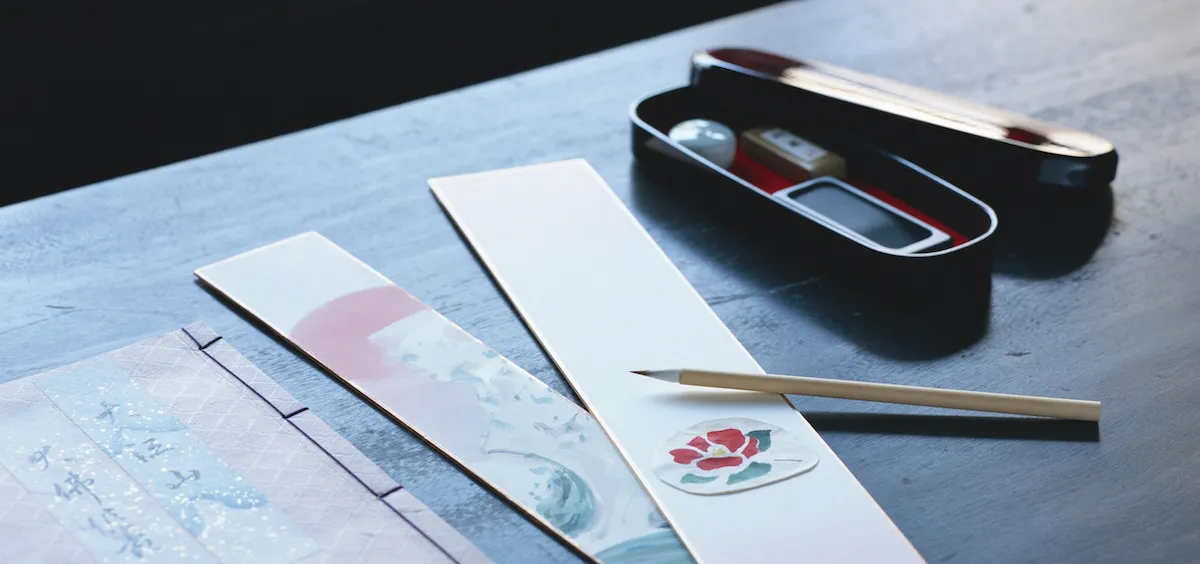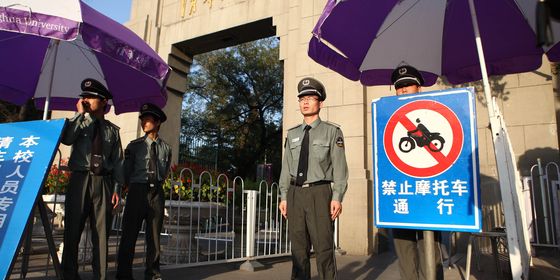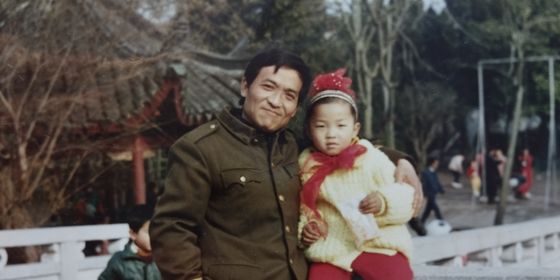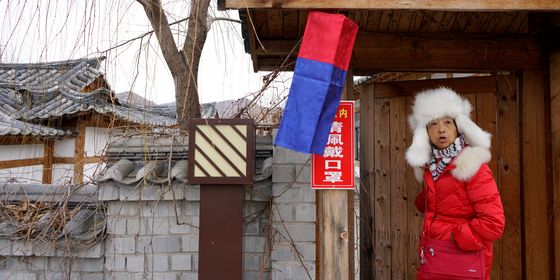Messages from Japanese coronavirus-relief donors highlight a history of cultural exchange with China
In late January, a donation of masks and thermometers from the Japan Youth Development Association in Tokyo to the coronavirus-stricken Hubei province caused a stir on Chinese social media.
This was because of the powerful poetic message written on each box: “山川异域, 风月同天,” which literally translates to “Mountains and rivers on foreign land, wind and moon under the same sky,” or officially, “Lands apart, sky shared.” Besides the heartfelt regard and the elegant language, the quote also alluded a significant moment in the history of cultural exchange between the two countries.
The line comes from a seventh century Buddhist hymn by Prince Nagaya, a politician from the Nara period (710 – 794) of Japan, titled “Embroidered on Kasaya Robes for Good Karma” (《绣袈裟衣缘》):
Lands apart, sky shared.
For the disciples of Buddha, to nurture good karma.
As the title suggests, the hymn was embroidered on 1,000 Buddhist robes which Prince Nagaya had made and sent to the Tang court in China, part of his invitation for Chinese Buddhist monks to visit Japan. The poem was also included in the Complete Tang Poems (《全唐诗》), the largest existing collection of Tang poetry.
Inspired by the Prince’s hymn, Jianzhen (鉴真), the renowned traveler and spiritual leader from the Tang dynasty (618 – 907), decided to go on a voyage to Japan. After six attempts and the loss of his eyesight, Jianzhen finally arrived, and made a significant contribution to the spread of Buddhism in Japan.
The reference does not only invoke shared history, but also mutual appreciation for ancient poetry in the Chinese language. Many in China were touched by the poetic expression of support from Japanese citizens during the COVID-19 outbreak.
The positive response has encouraged other donors from Japan to include similar poetic messages with their donations. In early February, another shipment of medical supplies from Japan arrived with another famous line: “岂曰无衣,与子同裳,” which translates to “Fear not the want of armor, for mine is also yours to wear,” a quote from a battle song of the Qin state, “Wuyi,” (《秦风·无衣》) in the Book of Songs (《诗经》). It was reportedly suggested to the Japanese donor organization by an overseas Chinese student to express a wish to fight together against the virus. The full verse goes:
Fear not the want of armor, for mine is also yours to wear.
The king is raising his forces; I will sharpen my weapons, and march along with you!
In another case, the city of Maizuru donated supplies to Dalian, its “friendship city” since 1982, with the message: “青山一道同云雨,明月何曾是两乡,” a quote from Tang poet Wang Changling’s (王昌龄) “Seeing Off Imperial Censor Chai” (《送柴侍御》):
The river connects all the way to Wugang
On parting with you my heart is not weighed down.
Though separated by a mountain, we’ll share the same clouds and rain
The bright moon belongs not to a single town.
In Toyama prefecture, an official even wrote an original poem to go with his prefecture’s donation to Liaoning province:
Liao River thaws, while flowers bloom in Toyama
Of the same breath and from joint branches, we hope together for the spring to come soon.
In this difficult time, poetry seems to hold a special power to comfort and connect.












